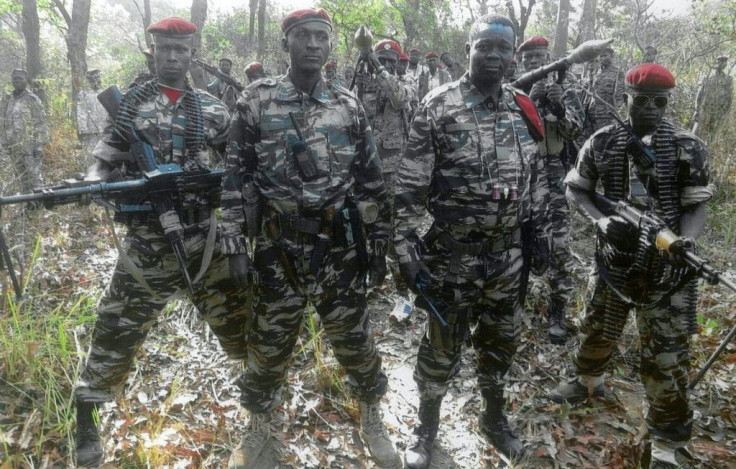UN Slaps Sanctions On Central Africa Rebel Chief

The UN Security Council on Monday imposed sanctions on Central African Republic rebel leader Abdoulaye Miskine, who last year signed a peace agreement between the government and armed groups.
Miskine, founder and head of the Democratic Front of the Central African People (FDPC), was offered a government position under the terms of the February 2019 accord.
However, in the last report by UN experts monitoring sanctions and an arms embargo imposed in 2013, the self-proclaimed general was mentioned as looking for fighters.
Despite the signing of the agreement, Miskine "remains a threat to the peace, stability and security of the CAR," a diplomat said.
Miskine had signed the peace agreement in Khartoum between CAR President Faustin-Archange Touadera and the heads of 14 armed groups.
Under the deal, militia chiefs were given senior government positions in the purported aim of helping to cement peace.
Miskine was named as an adviser to the new government but never took up his post, according to Bangui.
In November 2019, the Central African government said Miskine had been arrested in neighboring Chad and demanded his extradition.
He has now been put under UN sanctions, which include an asset freeze and travel ban.
One of the world's poorest countries, the landlocked CAR has been mired in conflict for years.
Most of the country is in the hands of armed groups that claim to represent religious or ethnic communities, and often fight over the country's rich mineral resources.
Miskine set up the FDPC in 2004, when the country first plunged into civil war, and gave himself the rank of general.
He joined the coalition of mainly Muslim militias that in 2013 overthrew then-president Francois Bozize -- a revolt that sparked French military intervention and the holding of elections for a successor.
Since then the CAR has been devastated by fighting between numerous rebel militias and government forces and also between the armed groups themselves.
The violence has abated in CAR since the Khartoum accord, but fighting between rebel groups continues and the toll among civilians is still rising.
More than a quarter of the 4.7 million population have fled their homes.
© Copyright AFP {{Year}}. All rights reserved.





















